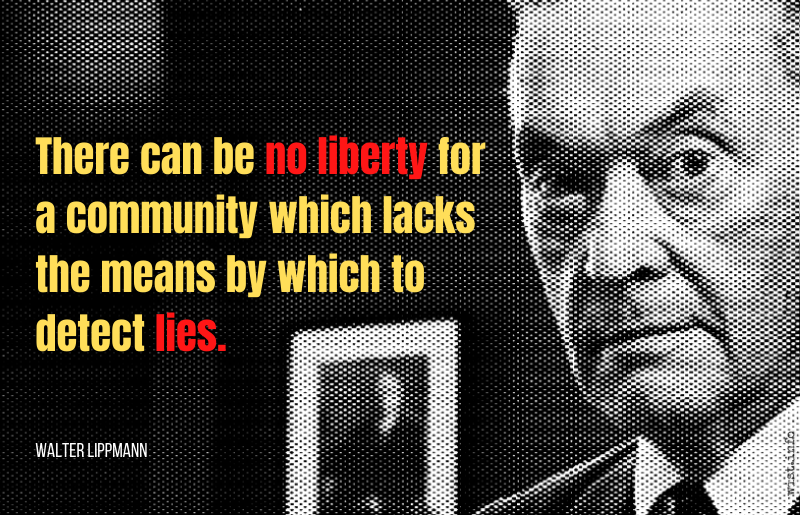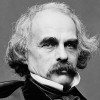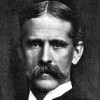The truth that survives is simply the lie that is pleasant to believe.
H. L. Mencken (1880-1956) American writer and journalist [Henry Lewis Mencken]
A Little Book in C Major, ch. 2, § 31 (1916)
(Source)
Quotations about:
falsehood
Note not all quotations have been tagged, so Search may find additional quotes on this topic.
It is a melancholy truth that a suppression of the press could not more compleatly deprive the nation of its benefits, than is done by its abandoned prostitution to falsehood. Nothing can now be believed which is seen in a newspaper. Truth itself becomes suspicious by being put into that polluted vehicle. […] I will add that the man who never looks into a newspaper is better informed than he who reads them; inasmuch as he who knows nothing is nearer to truth than he whose mind is filled with falsehoods & errors. He who reads nothing will still learn the great facts, and the details are all false.
Thomas Jefferson (1743-1826) American political philosopher, polymath, statesman, US President (1801-09)
Letter to John Norvell (11 Jun 1807)
(Source)
For with the truth, all the given facts harmonize; but with what is false, the truth soon hits a wrong note.
[τῷ μὲν γὰρ ἀληθεῖ πάντα συνᾴδει τὰ ὑπάρχοντα, τῷ δὲ ψευδεῖ ταχὺ διαφωνεῖ τἀληθές.]
Aristotle (384-322 BC) Greek philosopher
Nicomachean Ethics [Ἠθικὰ Νικομάχεια], Book 1, ch. 8 (1.8, 1098b.11) (c. 325 BC) [tr. Bartlett/Collins (2011)]
(Source)
(Source (Greek)). Alternate translations:
With what is true all things which really are are in harmony, but with that which is false the true very soon jars.
[tr. Chase (1847), ch. 6]
For with a true theory all facts agree, while with what is false truth is quickly found to conflict.
[tr. Williams (1869)]
For while all, experience harmonizes with the truth, it is never long before truth clashes with falsehood.
[tr. Welldon (1892)]
For all experience harmonizes with a true principle, but a false one is soon found to be incompatible with the facts.
[tr. Peters (1893)]
For with a true view all the data harmonize, but with a false one the facts soon clash.
[tr. Ross (1908)]
For if a proposition be true, all the facts harmonize with it, but if it is false, it is quickly seen to be discordant with them.
[tr. Rackham (1934)]
For all the data are in tune with a true view, whereas they soon clash with a false one.
[tr. Reeve (1948)]
For all things which belong to it are in harmony with a true [definition of it], but truth is soon bound to clash with a false [definition of it].
[tr. Apostle (1975)]
Because if a statement is true all the data are in harmony with it, while if it is false they soon reveal a discrepancy.
[tr. Thomson/Tredennick (1976)]
For all the data harmonize with the truth, but soon clash with falsity.
[tr. Crisp (2000)]
There can be no liberty for a community which lacks the means by which to detect lies.
Walter Lippmann (1889-1974) American journalist and author
“What Modern Liberty Means,” Liberty and the News (1920)
(Source)
When people reject a truth or an untruth it is not because it is a truth or an untruth that they reject it,
No, if it isn’t in accord with their beliefs in the first place they simply say, “Nothing doing,” and refuse to inspect it.
Likewise when they embrace a truth or an untruth it is not for either its truth or its mendacity,
But simply because they have believed it all along and therefore regard the embrace as a tribute to their own fair-mindedness and sagacity.
Ogden Nash (1902-1971) American poet
“Seeing Eye to Eye is Believing,” Good Intentions (1942)
(Source)
The ideal subject of totalitarian rule is not the convinced Nazi or the convinced Communist, but people for whom the distinction between fact and fiction (i.e., the reality of experience) and the distinction between true and false (i.e., the standards of thought) no longer exist.
Hannah Arendt (1906-1975) German-American philosopher, political theorist
The Origins of Totalitarianism, Part 3, ch. 13 “Ideology and Terror” (1951)
(Source)
Though I’ve never understood how God could expect his creatures to pick the one true religion by faith — it strikes me as a sloppy way to run a universe.
Robert A. Heinlein (1907-1988) American writer
Stranger in a Strange Land, ch. 13 [Jubal] (1961)
(Source)
In the "original uncut" edition (1960, published 1991), this is given as: "I've never been able to understand 'faith' myself, nor to see how a just God could expect his creatures to pick the one true religion out of an infinitude of false ones -- by faith alone. It strikes me as a sloppy way to run an organization, whether a universe or a smaller one."
We lie to ourselves, in order that we may still have the excuse of ignorance, the alibi of stupidity and incomprehension, possessing which we can continue with a good conscience to commit and tolerate the most monstrous crimes.
He who will please the crowd and for the sake of the most ephemeral renown will either proclaim those things which nature does not display or even will publish genuine miracles of nature without regard to deeper causes is a spiritually corrupt person.
Almost every man wastes part of his life in attempts to display qualities which he does not possess, and to gain applause which he cannot keep.
Samuel Johnson (1709-1784) English writer, lexicographer, critic
The Rambler, #189 (7 Jan 1752)
(Source)
A man who himself does not believe what he tells another … has even less worth than if he were a mere thing. For a thing, as something real and given, has the property of being serviceable. … But the man who communicates his thoughts to someone in words which yet (intentionally) contain the contrary of what he thinks on the subject has a purpose directly opposed to the natural purposiveness of the power of communicating one’s thoughts, and therefore renounces his personality and makes himself a mere deceptive appearance of man, not man himself.
I honestly beleave it iz better tew know nothing than two know what ain’t so.
[I honestly believe it is better to know nothing than to know what ain’t so.]
Josh Billings (1818-1885) American humorist, aphorist [pseud. of Henry Wheeler Shaw]
Everybody’s Friend, Or; Josh Billing’s Encyclopedia and Proverbial Philosophy of Wit and Humor, “Sollum Thoughts” (1874)
(Source)
This was Billings signature aphorism, and he used variations on multiple occasions. Variants and evolutions have also been misattributed to Will Rogers, Mark Twain, and Artemus Ward, sometimes from their own paraphrases of Billings. Some variations (usually without specific citations) include:
In a similar vein, Billings wrote, "Wisdum don't konsist in knowing more that iz new, but in knowing less that iz false. [Wisdom doesn't consist in knowing more that is new, but in knowing less than is false.]" [Source]
- "The trouble with people is not that they don't know but that they know so much that ain't so."
- "It ain't what you don't know that gets you into trouble. It's what you know for sure that just ain't so."
- "You’d better not know so much, than know so many things that ain’t so."
More discussion about this quotation:
- It Ain’t What You Don’t Know That Gets You Into Trouble. It’s What You Know for Sure That Just Ain’t So – Quote Investigator
- Ralph Keyes, The Quote Verifier (2006)
- Ralph Keyes, Nice Guys Finish Seventh (1992)
- James Billington, Respectfully Yours (1993)
- Daniel Levitin, A Field Guide to Lies, Deluxe Ed. (2016)
If falsehood, like truth, had but one face, we should be better off, for we should take for certain the contrary of what the liar said. But the opposite of truth has a hundred thousand shapes and a limitless field.
[Si comme la verité, le mensonge n’avoit qu’un visage, nous serions en meilleurs termes : car nous prendrions pour certain l’opposé de ce que diroit le menteur. Mais le revers de la verité a cent mille figures, et un champ indefiny.]
Michel de Montaigne (1533-1592) French essayist
Essays, Book 1, ch. 9 “On Liars [Des Menteurs]” (1572) (1.9) (1595) [tr. Ives (1925)]
(Source)
(Source (French)). Alternate translations:
If a lie had no more faces but one, as truth hath; we should be in farre better termes then we are: For, whatsoever a lier should say, we would take it in a contrarie sense. But the opposite of truth hath many-many shapes, and an undefinite field.
[tr. Florio (1603)]
If Falshood had, like Truth, but one Face only, we should be upon better Terms; for we should then take the contrary to what the Lyer says for certain Truth; but the Reverse of Truth has a hundred thousand Figures, and a Field indefinite without Bound or Limit.
[tr. Cotton (1686)]
If Falsehood had, like Truth, only one face, we should be upon better terms; for we should then take the contrary of what the liar should say for certain truth; but the reverse of truth has a hundred thousand forms, and a field without limits.
[tr. Friswell (1868)]
If falsehood had, like truth, but one face only, we should be upon better terms; for we should then take for certain the contrary to what the liar says: but the reverse of truth has a hundred thousand forms, and a field indefinite, without bound or limit.
[tr. Cotton/Hazlitt (1877)]
If falsehood, like truth, had only one face, we would be in better shape. For we would take as certain the opposite of what the liar said. But the reverse of truth has a hundred thousand shapes and a limitless field.
[tr. Frame (1943)]
If a lie, like truth, had only one face we could be on better terms, for certainty would be the reverse of what the liar said. But the reverse side of truth has a hundred thousand shapes and no defined limits.
[tr. Screech (1987)]
If, like truth, falsehood had only one face, we would be better off. We could trust that the opposite of whatever a liar says is true. But the flip side of the truth is endless and has a hundred thousand faces.
[tr. HyperEssays (2023)]
Already I had learned from thee that because a thing is eloquently expressed it should not be taken to be as necessarily true; nor because it is uttered with stammering lips should it be supposed false. Nor, again, is it necessarily true because rudely uttered, nor untrue because the language is brilliant. Wisdom and folly both are like meats that are wholesome and unwholesome, and courtly or simple words are like town-made or rustic vessels — both kinds of food may be served in either kind of dish.
[Iam ergo abs te didiceram nec eo debere videri aliquid verum dici, quia eloquenter dicitur, nec eo falsum, quia incomposite sonant signa labiorum; rursus nec ideo verum, quia impolite enuntiatur, nec ideo falsum, quia splendidus sermo est, sed perinde esse sapientiam et stultitiam sicut sunt cibi utiles et inutiles, verbis autem ornatis et inornatis sicut vasis urbanis et rusticanis utrosque cibos posse ministrari.]
Augustine of Hippo (354-430) Christian church father, philosopher, saint [b. Aurelius Augustinus]
Confessions, Book 5, ch. 6 / ¶ 10 (5.6.10) (c. AD 398) [tr. Outler (1955)]
(Source)
(Source (Latin)). Alternate translations:
Of Thyself therefore had I now learned, that neither ought any thing to seem to be spoken truly, because eloquently; nor therefore falsely, because the utterance of the lips is inharmonious; nor, again, therefore true, because rudely delivered; nor therefore false, because the language is rich; but that wisdom and folly are as wholesome and unwholesome food; and adorned or unadorned phrases as courtly or country vessels; either kind of meats may be served up in either kind of dishes.
[tr. Pusey (1838)]
Of Thyself, therefore, had I now learned that neither ought anything to seem to be spoken truly, because eloquently; nor therefore falsely, because the utterance of the lips is inharmonious; nor, again, therefore true, because rudely delivered; nor therefore false, because the language is rich; but that wisdom and folly are as wholesome and unwholesome food; and adorned or unadorned phrases, as courtly or country vessels: either kind of meats may be served up in either kind of dishes.
[ed. Shedd (1860)]
From Thee, therefore, I had now learned, that because a thing is eloquently expressed, it should not of necessity seem to be true; nor, because uttered with stammering lips, should it be false nor, again, perforce true, because unskillfully delivered; nor consequently untrue, because the language is fine; but that wisdom and folly are as food both wholesome and unwholesome, and courtly or simple words as town-made or rustic vessels, -- and both kinds of food may be served in either kind of dish.
[tr. Pilkington (1876)]
I had learned, then, from Thee, that neither ought a thing to be regarded as true because it is eloquently uttered, nor on the other hand false because awkwardly expressed; neither is it true because the diction is ungraceful, nor false because clothed in glowing language; but that truth and folly are like wholesome and hurtful food, and language ornate and bald like fine and plain dishes, and either kind of meat may be served in either kind of dish.
[tr. Hutchings (1890)]
Already I had learned from Thee, that nothing ought to seem true because it is well expressed, nor false because the word-symbols are inelegant; yet again, that nothing is true because rudely delivered, nor false because the diction is brilliant; but that wisdom and folly are like meats that are wholesome or unwholesome, and that either kind of meat can be served up in silver or in delf, that is to say, in courtly or in homely phrase.
[tr. Bigg (1897), 5.6.2]
From You then I learned that a thing was not bound to be true because uttered eloquently, nor false because the utterance of the lips is ill-arranged; but that on the other hand a thing is not necessarily true because badly uttered, nor false because spoken magnificently. For it is with wisdom and folly as with wholesome and unwholesome food: just as either kind of food can be served equally well in rich dishes or simple, so plain or beautiful language may clothe either wisdom or folly indifferently.
[tr. Sheed (1943)]
Already, therefore, I had learned from you that nothing should be held true merely be-cause it is eloquently expressed, nor false because its signs sound harsh upon the lips. Again, I learned that a thing is not true because rudely uttered, nor is it false because its utterance is splendid. I learned that wisdom is like wholesome food and folly like unwholesome food: they can be set forth in language ornate or plain, just as both kinds of food can be served on rich dishes or on peasant ware.
[tr. Ryan (1960)]
But in your wonderful, secret way, my God, you had already taught me that a statement is not necessarily true because it is wrapped in fine language or false because it is awkwardly expressed. I believe that it was you who taught me this, because it is the truth and there is no other teacher of the truth besides yourself, no matter how or where it comes to light. You had already taught me this lesson and the converse truth, that an assertion is not necessarily true because it is badly expressed or false because it is finely spoken. I had learnt that wisdom and folly are like different kinds of food. Some are wholesome and others are not, but both can be served equally well on the finest china dish or the meanest earthenware. In just the same way, - wisdom and folly can be clothed alike in plain words or the finest flowers of speech.
[tr. Pine-Coffin (1961)]
I had now learned this from you: that a thing is not necessarily true for being expressed eloquently, nor necessarily false if the sounds made by the lips are imperfectly pronounced; nor, on the other hand, is a thing true simply because it is expressed in a rough and ready way, nor false because it is uttered in a fine style. For with wisdom and folly the same thing holds good as with wholesome and unwholesome food. You can have silver or earthenware dishes on the table, just as you can have a decorated or undecorated use of language; either kind of food can be served in either kind of dish.
[tr. Warner (1963)]
I believe that because you taught me and I had already learned from you that nothing should be deemed truly spoken because it is eloquently spoken, nor false because the indications of the lips are ill-arranged. Conversely, uncouth expression does not make something true, nor polished delivery make truth false. As with wholesome and unwholesome food, so it is with wisdom and folly, and as with adorned and unadorned language, so good food and bad can be served up in elegant or rustic dishes.
[tr. Blaiklock (1983)]
ANTONIO: Mark you this, Bassanio,
The devil can cite Scripture for his purpose.
An evil soul, producing holy witness,
Is like a villain with a smiling cheek,
A goodly apple rotten at the heart.
O, what a goodly outside falsehood hath!William Shakespeare (1564-1616) English dramatist and poet
Merchant of Venice, Act 1, sc. 3, l. 106ff (1.3.106-111) (1597)
(Source)
A candor affected is a dagger concealed.
Marcus Aurelius (AD 121-180) Roman emperor (161-180), Stoic philosopher
Meditations, Book 11, #15 [tr. Staniforth (1964)]
(Source)
Alternate translations:
- "But the affectation of simplicity is nowise laudable." [tr. Casaubon (1634), #14]
- "An affectation of being real, is an untoward pretence." [tr. Collier (1701)]
- "But the affectation of simplicity is like a crooked stick." [tr. Long (1862)]
- "An affectation of sincerity is a very dagger." [tr. Zimmern (1887)]
- "But the affectation of simplicity is like a razor." [tr. Farquharson (1944)]
- "But false straightforwardness is like a knife in the back." [tr. Hays (2003)]
To be glad of life because it gives you to chance to love and to work and to play and to look up at the stars — to be satisfied with your possessions but not content with yourself until you have made the best of them — to despise nothing in the world except falsehood and meanness, and to fear nothing except cowardice — to be governed by you admirations rather than by your disgusts — to covet nothing that is your neighbors except his kindness of heart and gentleness of manners — to think seldom of your enemies, often of your friends, and every day of Christ; to spend as much time as you can in God’s out-of doors — these are the little guideposts on the foot-path to peace.
Henry Van Dyke (1852-1933) American clergyman and writer
“The Foot-path to Peace,” Tacoma Times (1 Jan 1904)
(Source)
Often shortened to: "Be glad for life because it gives you the chance to love and to work and to look up at the stars."
The widespread interest in gossip is inspired, not by a love of knowledge, but by malice: no one gossips about other people’s secret virtues, but only about their secret vices. Accordingly most gossip is untrue, but care is taken not to verify it. Our neighbour’s sins, like the consolations of religion, are so agreeable that we do not stop to scrutinize the evidence closely.
Bertrand Russell (1872-1970) English mathematician and philosopher
“The Aims of Education” (1929)
(Source)
Usually shortened to "No one gossips about other people's secret virtues."























